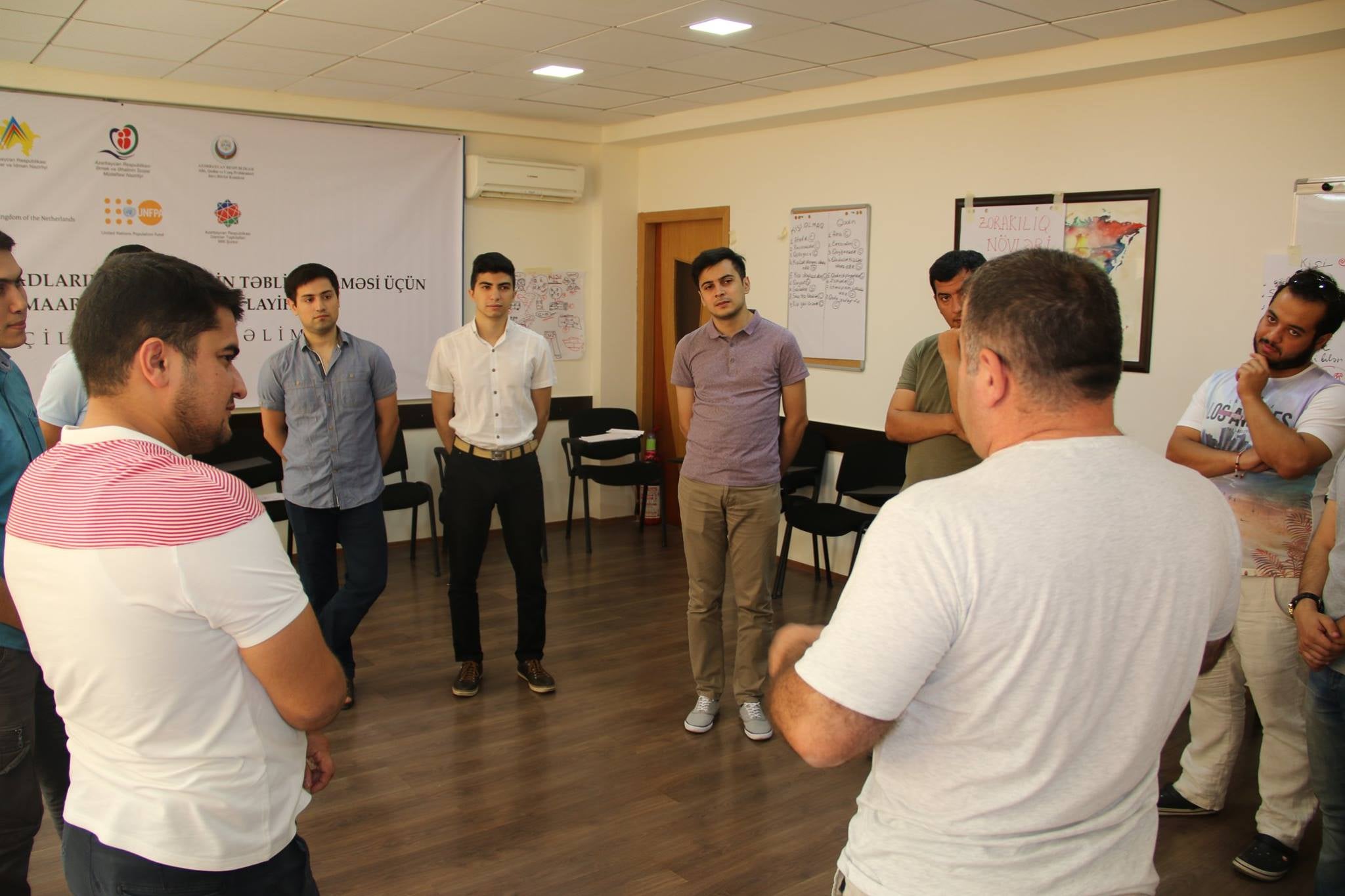BAKU, Azerbaijan — Son preference is not a myth: in many countries, parents will go to great lengths to make sure they have at least one son.
Yet this comes at a significant cost – to families, society, and even to the demographic structure of a country.
Also known as gender-biased sex selection, the practice of actively choosing the birth of boys over girls is not only common in parts of Asia, but also in some countries in the South Caucasus and South-eastern Europe.
In a recent report, “Preventing Son Preference and Undervaluing of Girls in Eastern Europe and Central Asia,” UNFPA, the United Nations Population Fund, suggests that countries in which sex selection exists usually share three characteristics: a strong preference for male children, falling fertility rates and access to modern ultrasound technologies.
Azerbaijan displays all three characteristics.
The case of Azerbaijan
The first factor, son preference, is deeply rooted in local traditions, with sons generally being seen as more valuable than daughters. In a patriarchal country whose citizens are insufficiently protected by social security, sons are a guarantee for ageing parents and earn more to contribute to the family’s income. They also handle religious rituals, carry on the family name and inherit land, which is handed down through the male line.
Daughters, on the other hand, are perceived as less valuable. They leave home once they marry and integrate into their husband’s family. As a result, a daughter is often considered a burden, since parents may pay a dowry but get little in return.
“Parents are often more willing to have sons than daughters,” said Farid Babayev, head of the UNFPA country office in Azerbaijan. “The normal sex ratio at birth is about 106 boys born for every 100 girls, but in Azerbaijan we now have 114 boys for every 100 girls. This is a huge imbalance.”
Low fertility is the second factor, and countries with son preference that also experience a fall in fertility, as is Azerbaijan, are hardest hit by this growing disproportion. With fewer children being born, making sure at least one is a boy becomes even more imperative.
“If a family is having few children and has to decide, it will often choose having a boy over a girl,” said Gabriela Alvarez Minte, UNFPA’s Regional Gender Advisor for Eastern Europe and Central Asia.
Tradition and fertility are not the only drivers of sex selection. Modern technology makes it easier to determine a child’s sex – and easier for a parent to choose.
“Ultrasounds and other modern technologies can reveal the gender of an embryo, after which, according to national law, a woman can choose to terminate or go on with the pregnancy,” said Farid Babayev.

Demographic resilience: light at the end of the tunnel
The region’s boy-to-girl ratio has long been of concern to UNFPA and is one of the issues being dealt with as part of its Demographic Resilience Programme.
Janoglan Ilyasov runs a state vocational high school and holds training sessions for men, which are run jointly by UNFPA and the National Council of Youth Organizations in Azerbaijan. His mission is to convince the men he meets that having daughters – the eldest of his two children is a girl – is not a misfortune.
“I was fortunate as I was brought up in a household where boys and girls were treated equally,” he said, “and that is what I try to explain to the men I work with. Rather than follow discriminatory cultural practices, they should strive to support shared decision-making in their respective families.”
“What I try to do is pry minds open by offering food for thought,” Mr. Ilyasov said. “Once they open up to change, the men pause and perhaps rethink and question their own attitudes and behaviours.”
The consequences of sex selection
The consequences of gender-biased sex selection go far beyond upending the ratio of boys to girls. In fact, the practice can have devastating consequences.
Women in societies that prefer sons will often see boys as a guarantee of support for them later in life, and as caretakers of tradition. They may also face external pressure to have male children and if they do not, they may suffer violence from their family or become abandoned. If a woman is pregnant with a girl, she may be forced to have an abortion, or several in a row.
Left unaddressed, this kind of gender imbalance can even lead to increases in human trafficking and early marriages; some men may feel driven to extremes to find a partner in societies where few women are available for marriage. This all emphasizes the low value placed on girls and the many efforts families make to avoid giving birth to daughters.
“Son preference has skewed demographic structures in several countries in the region,” said Alanna Armitage, UNFPA’s former Regional Director for Eastern Europe and Central Asia. “Not only does it endanger the health – and the rights – of women and girls, but it also affects society as a whole, perpetuating gender inequality and jeopardizing the future.”
Progress within reach
Azerbaijan has plenty of reasons to be optimistic, however.
In 2017, UNFPA partnered with the European Union to launch the Global Programme to Prevent Son Preference and Gender-biased Sex Selection, first across Asia and then in the Caucasus. Azerbaijan was part of that effort, which helped governments and local groups gather data on son preference and bring this information to the world’s attention.
Within the global programme, and as a result of UNFPA’s efforts, the government of Azerbaijan adopted a National Action Plan on gender-biased sex selection for 2020-2025. Also, its national development plan, “Concept Azerbaijan 2030”, identifies gender equality as a priority. Awareness is growing, and the country has passed major laws and enacted policies enshrining these rights. Internationally, Azerbaijan has signed several agreements guaranteeing the rights of women, demonstrating its willingness to move forward.
UNFPA’s role in the region is twofold. On the one hand, it helps shift public policies that discriminate, but it also works to change individual behaviours and practices, through innovative activities ranging from celebrity endorsements and flash mobs to summer camps and workshops. All this is underpinned by a growing body of data that enhances dialogue with decision makers, media, civil society and religious leaders.
Whatever the advances, however, challenges remain. The strands of tradition run deep, laws and policies are not always implemented, institutions still need strengthening and financial insecurity still guides many decisions.
For trainers like Janoglan Ilyasov, it is a question of one step at a time. Combined with policy changes and the willingness to apply them, changing individual attitudes and behaviours will slowly push the needle of equality forward.


